Haikang Deng
DialectGen: Benchmarking and Improving Dialect Robustness in Multimodal Generation
Oct 16, 2025
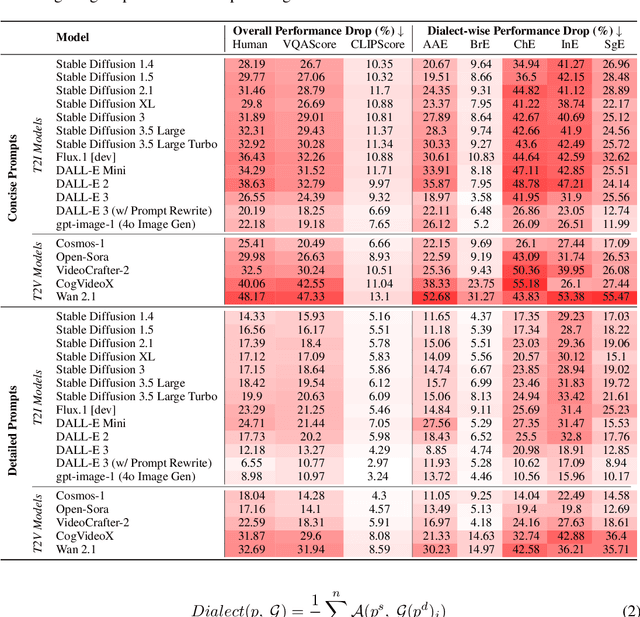
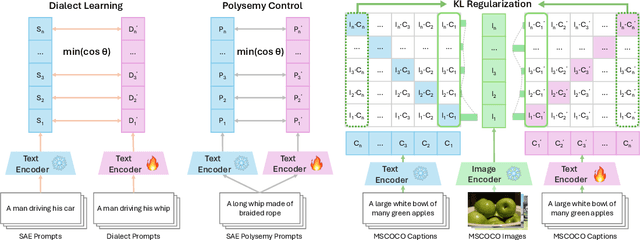
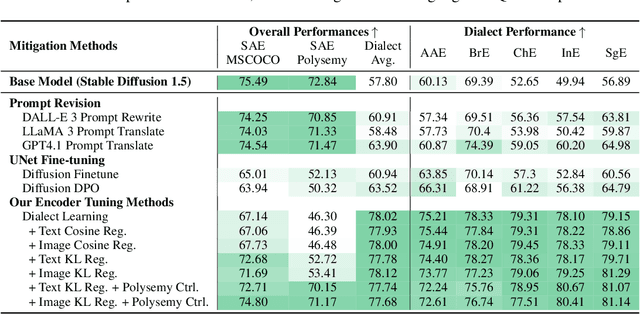
Abstract:Contact languages like English exhibit rich regional variations in the form of dialects, which are often used by dialect speakers interacting with generative models. However, can multimodal generative models effectively produce content given dialectal textual input? In this work, we study this question by constructing a new large-scale benchmark spanning six common English dialects. We work with dialect speakers to collect and verify over 4200 unique prompts and evaluate on 17 image and video generative models. Our automatic and human evaluation results show that current state-of-the-art multimodal generative models exhibit 32.26% to 48.17% performance degradation when a single dialect word is used in the prompt. Common mitigation methods such as fine-tuning and prompt rewriting can only improve dialect performance by small margins (< 7%), while potentially incurring significant performance degradation in Standard American English (SAE). To this end, we design a general encoder-based mitigation strategy for multimodal generative models. Our method teaches the model to recognize new dialect features while preserving SAE performance. Experiments on models such as Stable Diffusion 1.5 show that our method is able to simultaneously raise performance on five dialects to be on par with SAE (+34.4%), while incurring near zero cost to SAE performance.
Reward-Augmented Decoding: Efficient Controlled Text Generation With a Unidirectional Reward Model
Oct 26, 2023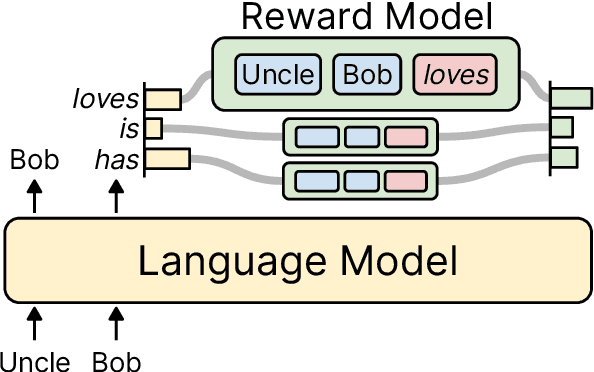
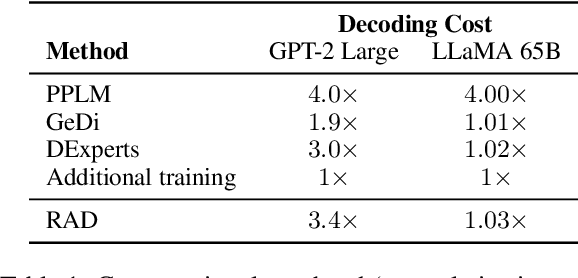
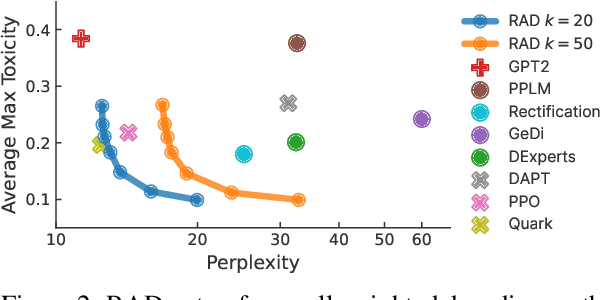
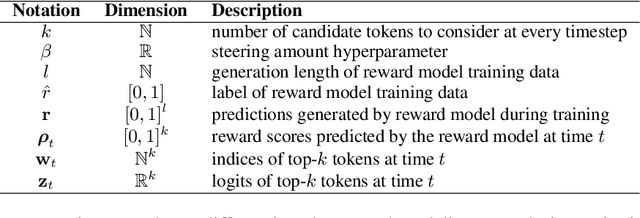
Abstract:While large language models have proven effective in a huge range of downstream applications, they often generate text that is problematic or lacks a desired attribute. In this paper, we introduce Reward-Augmented Decoding (RAD), a text generation procedure that uses a small unidirectional reward model to encourage a language model to generate text that has certain properties. Specifically, RAD uses the reward model to score generations as they are produced and rescales sampling probabilities to favor high-reward tokens. By using a unidirectional reward model, RAD can cache activations from prior generation steps to decrease computational overhead. Through experiments on generating non-toxic and sentiment-controlled text, we demonstrate that RAD performs best among methods that change only the generation procedure and matches the performance of state-of-the-art methods that involve re-training the language model. We further validate that RAD is effective on very large language models while incurring a minimal computational overhead.
Large Language Models Struggle to Learn Long-Tail Knowledge
Nov 15, 2022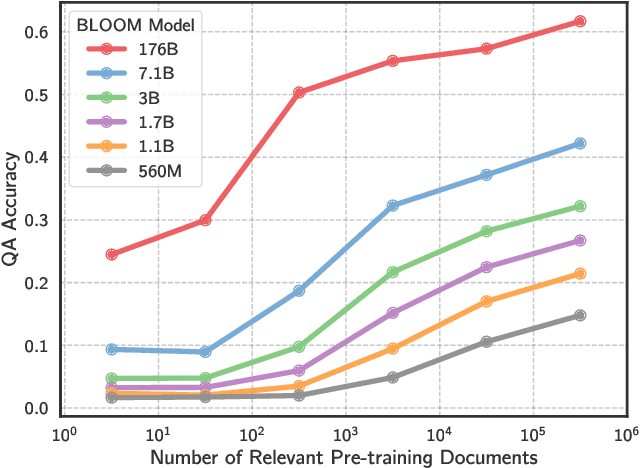
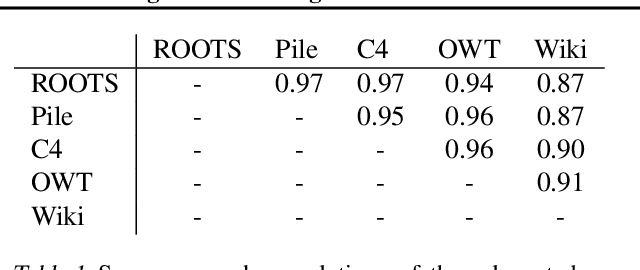
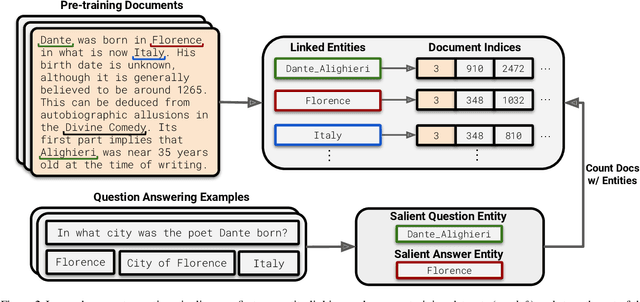
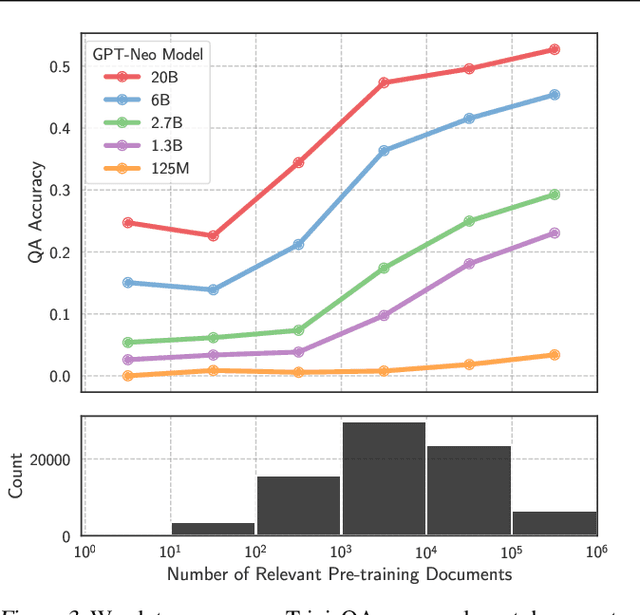
Abstract:The internet contains a wealth of knowledge -- from the birthdays of historical figures to tutorials on how to code -- all of which may be learned by language models. However, there is a huge variability in the number of times a given piece of information appears on the web. In this paper, we study the relationship between the knowledge memorized by large language models and the information in their pre-training datasets. In particular, we show that a language model's ability to answer a fact-based question relates to how many documents associated with that question were seen during pre-training. We identify these relevant documents by entity linking pre-training datasets and counting documents that contain the same entities as a given question-answer pair. Our results demonstrate strong correlational and causal relationships between accuracy and relevant document count for numerous question answering datasets (e.g., TriviaQA), pre-training corpora (e.g., ROOTS), and model sizes (e.g., 176B parameters). Moreover, we find that while larger models are better at learning long-tail knowledge, we estimate that today's models must be scaled by many orders of magnitude to reach competitive QA performance on questions with little support in the pre-training data. Finally, we show that retrieval-augmentation can reduce the dependence on relevant document count, presenting a promising approach for capturing the long-tail.
 Add to Chrome
Add to Chrome Add to Firefox
Add to Firefox Add to Edge
Add to Edge